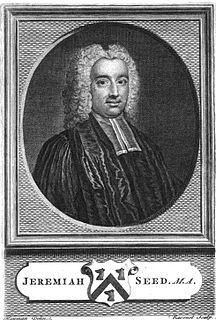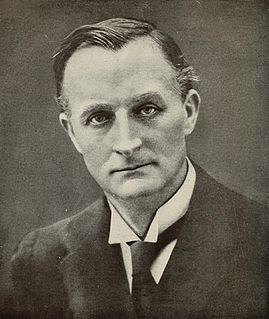A Quote by Adam Smith
Men desire to have some share in the management of public affairs chiefly on account of the importance which it gives them.
Quote Topics
Related Quotes
For men, as a rule, love is but an episode which takes place among the other affairs of the day, and the emphasis laid on it in novels gives it an importance which is untrue to life. There are few men to whom it is the most important thing in the world, and they are not the very interesting ones; even women, with whom the subject is of paramount interest, have a contempt for them.
Such is man's nature, that he is very inactive and lazy unless he is influenced by some affection, either love or hatred, desire, hope, fear, or some other. These affections we see to be the springs that set men agoing, in all the affairs of life, and engage them in all their pursuits: these are the things that put men forward, and carry them along.
The public affairs of the union are spread throughout a very extensive region, and are extremely diversified by the local affairs connected with them, and can with difficulty be learnt in any other place, than in the central councils, to which a knowledge of them will be brought by the representatives of every part of the empire. Yet some knowledge of the affairs, and even of the laws of all the states, ought to be possessed by the members from each of the states.
I believe that the public temper is such that the voters of the land are prepared to support the party which gives the best promise of administering the government in the honest, simple, and plain manner which is consistent with its character and purposes. They have learned that mystery and concealment in the management of their affairs cover tricks and betrayal. The statesmanship they require consists in honesty and frugality, a prompt response to the needs of the people as they arise, and a vigilant protection of all their varied interests.
Management, in the sense of employer, is merely the agent for the public, the stockholders and the employees. It is management's job to preserve the balance fairly between all these interests, that each may have his fair share without imperiling the continuity of the effort upon which the whole depends.
The prosecution [of impeachments], will seldom fail to agitate the passions of the whole community, and to divide it into parties more or less friendly or inimical to the accused. The subjects of its jurisdiction are those offenses which proceed from the misconduct of public men, or, in other words, from the abuse or violation of some public trust, and they relate chiefly to injuries done immediately to the society itself.
Trade is the natural enemy of all violent passions. Trade loves moderation, delights in compromise, and is most careful to avoid anger. It is patient, supple, and insinuating, only resorting to extreme measures in cases of absolute necessity. Trade makes men independent of one another and gives them a high idea of their personal importance: it leads them to want to manage their own affairs and teaches them to succeed therein. Hence it makes them inclined to liberty but disinclined to revolution.
Men of superior vivacity and wit, when they take a wrong turn, are generally worse than other men: because wit, consisting in a lively representation of ideas assembled together, gives every sensible object those heightening touches, and that striking imagery, which is unknown to men of slower apprehensions: wit being to sensible objects, what light is to bodies; it does not merely show them as they are in themselves: it gives an adventitious colour, which is not a property inherent in them: it lends them beauties which are not their own.
The reason is that nature has so created men that they are able to desire everything but are not able to attain everything: so that the desire being always greater than the acquisition, there results discontent with the possession and little satisfaction to themselves from it. From this arises the changes in their fortunes; for as men desire, some to have more, some in fear of losing their acquisition, there ensues enmity and war, from which results the ruin of that province and the elevation of another.




































